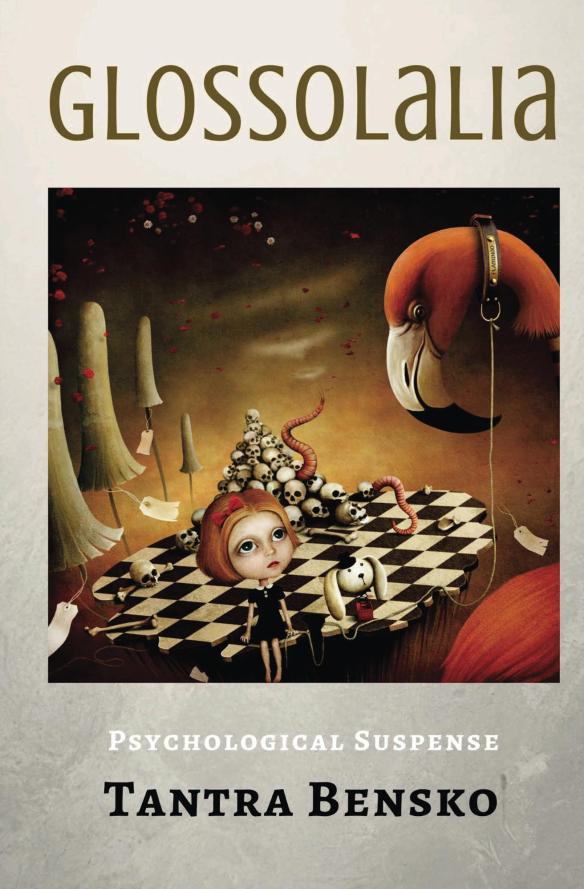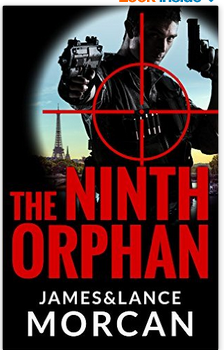Let me first qualify this post by saying I definitely believe people should be writing. Lots of Genre writers are making a killing and lots of Literary writers are happily due to publications able to have careers teaching and editing manuscripts. Other people are writing and reading for free in online groups where they make friends interested in the stories they write and post on the subway on their cell phones.
Whether your writing makes money or resonates with the masses or you have the wherewithal to do a big marketing push, go for it. There are cascades of magazines and anthologies hungry for your work and the interactions with their publishers are excellent. The imaginative arts redeem humanity. Sort of. Taking the raw material of life and turning it with mad skills into something ecstatically exciting for you and your readers is exquisite. Do it.
If anything, this post is meant to comfort if you aren’t succeeding the way you expected to, not to dissuade. Let’s look at what that means.
The methods and benchmarks of “making it” are quite different in Genre and Literary fiction, though some authors merge the two styles, in spite of being warned against it by experts who say it’s a no man’s land financially. Yes, it probably is, but some of us are just like that. Stubborn. Thus, the frustration in our rants. But that juncture is still beautiful and full of promise.
Literary writers have jobs. Or at least they want them. The most common ideal is teaching in universities, which is the reward for being authors. Their writing sure as heck isn’t likely to support them directly, unless they’re the exceedingly rare breed of authors established back in the old days when the major publishing houses did marketing and spent serious money on it.
So, they’re adjuncts. And they live in a closet or an enclosed porch, perhaps. Those are always nice.
Even now big publishers have to pay huge fees to bookstores to place books in the best locations and they need a lot of faith in sales to do that. Publishers must ship 20,000 books to stores to be taken seriously, and they have to expect many returned books. A book has a fraction of a percent chance of being stocked in a book store, anyway.
So most Literary fiction is put out by the small press with no thought of stores, or even selling much. And nothing in stores. They have no budget for marketing. They’re probably losing money to put out people’s books out of generous passion. They know what it’s like because they’re authors too.
The marketing comes from a few reviewers who submit their reactions to the books to Literary magazines, usually without pay other than sometimes a free book, because they are passionate about the work. Facebook writers network by sharing links to online magazine stories their friends have published, once in awhile, if they really like them, or hope their work will also be shared due to good karma. They might make the “best” or “most anticipated” yearly lists. They might get a few reviews on Amazon if they work it.
The more avant-garde the book is, the more it’s doing well if it sells a few, usually to other experimental authors who understand the ambitious concepts and are part of the exciting dialogue of innovation. And truly, each reader who gets it is wonderful and cause for celebration. That’s success.
If it’s short stories, forget about it. Makes a good Christmas present for Mom. On the other hand, no, Mom doesn’t know what experimental short stories are, and she wants to keep it that way. No need to scare her. How about chapbooks? Hahaha! Yeah, right. What the heck are those, says everybody.
Only somewhere around five percent of book sales are Literary. Without the author having the money, personality, health, time, confidence, and skills to do the majority or the entirity of enthusiastic and energetic promotion, his books are not going to create an International sensation and they won’t be one of the twenty Literary authors who carry most of the sales in that style.
Mostly, they will give local readings if they live in that kind of place, and maybe sell a book at a small percent of those events. They might have three minutes to read, or if they score big, ten minutes. The rewards are different from money. It’s like the old tribal tradition of telling each other stories beside the caves, by the fire. It’s having the voice heard, understood, appreciated by the community, and an identity and reason for one’s obscure eccentricity established. It’s like howling at the moon.
However, they may be able to afford to apply for grants, may be able to afford to send their work to contests. Usually if they can, they don’t win, and there’s the rub. But if they do, woohoo! They still might not have many readers, but they have a good line on their resume to get the fourth adjunct job needed to survive, and maybe even a good chunk of cash to use to submit to more contests. And they can feel valued by the people who read and chose their books as worthwhile.
The thing is, the numbers of people reading any kind of books are declining. In Alabama, for example, it’s only thirty four percent. No wonder people looked at me funny when I lived there.
This quote gets its own paragraph. “Only 6.7% of American adults read poetry last year.” Let me say that again. “Only 6.7% of American adults read poetry last year.”
The number of books being written which are competing with those slots is exploding, particularly due to POD and e-book self-publishing, which is where the real money is these days for Genre and non-fiction. Lots of non-fiction and a hefty number of Genre authors are becoming millionaires, even multimillionaires, and they are making a tons of money by telling people how they did that: what tools they used, what productivity hacking methods, what marketing ploys. That’s become the new mark of success. Some of these methods are free, but most cost money.
Who is actually making money with books? They’re young, usually Caucasian, healthy, business minded energetic men. In fact, they generally write non-fiction. No, actually, they buy PLR (written by someone else with the ability to change the author name to their own) or they outsource the writing. They’re affiliate marketers for the tools they share in their newsletters. They put on webinars which funnel into online courses, they give away free reports as lead magnets, have subscriptions, exclusive Facebook groups, become speakers at events. Because every writer wants to learn how to make more money. The books and courses that sell best are about how to make money as a writer. Often the people who have succeeded as authors did so only by writing those books. I know. Weird.
Literary books are successes depending on what the author decides feels good. That may change as he faces reality. It succeeds if it keeps his brain active rather than slipping into dementia in later years, if it transforms his painful experiences into art, if anyone reads it and likes it and even reviews it on Amazon or Goodreads or shouts out on Facebook.
It’s an expression of creativity. It’s a way of making every moment of life each finely honed sentence is written or read into something spectacular. Something exists that didn’t exist before. Maybe you pushed the concept of what can be done with literature in a new way never before seen. And it probably didn’t cost a lot of money. Time, yes, but what better way to spend it? Did you grow from it? Did you fall in love with the characters? Good.
Genre books succeed by being on the best seller lists. It’s harder to get onto the New York Times list, but even being in the Amazon top 100 is just dandy. If the book doesn’t do that, it tanks. People don’t see it. It needs good SEO to be found for popular keywords that aren’t already saturated. And authors are happy to sell you tools to do that.
With Genre, I’m sorry to say, after studying this extensively for years, success is about spending money. You might not make money. But you sure as heck spend it. Yes, there’s a lot of heck going on in the writing world.
This is the secret. Authors buy fake Twitter and Facebook followers. They buy Amazon reviews and buy reviews that demonize their competition. They have someone buy a truckload of books on launch day, to raise their ranking. They buy countless tools, endless software, much of it rather invasive and unfair. An author will pay 350,000 dollars a month in Facebook ads, month after month.
Not all of them do that. Some succeed honestly and without being rich. It takes all their time, and they’ve found just the right niche, and may be brilliant. They write a series with cliffhangers. They write Romance. They create groups of ardent passionate followers willing to review their work on launch day. They of course, like all the others, have great lead magnets to build their lists, like a free book.
How do people find the websites to know they want that free book? Because they read another of his free books on Amazon and it had a link to the splash page. The splash page is enticing because the author spent good money on it, and on tools to see how many people click the link if it has a red or an orange button, on the left or on the right, and how long people stayed on the site, what those people clicked on after they left the site, and what their social media profiles are.
Truly, people mostly find books because they belong to the humongous number of free or paid lists in which they are offered free e-books continually. They download them. They move on to the others in the list that day and the next and the next ,and the other lists. Do they have time to actually read them? How could they? But that brings the authors into the public eye briefly after the free period is done and so some people might buy them for a whopping 99 cents, of which the authors get 30 percent of the profit.
Genre authors don’t usually bother launching until they have at minimum 1000 people in their newsletter, and ideally 10,000 0 100,000 as a base number, with more obviously better. They have to give away a lot of lead magnets, run contests to give away cruises or a night in a castle, do free webinars in which they employ hard sales tactics, split test like a mofo, spend hundreds of dollars on covers even of the free books, guest post left and right and pay for the opportunity to people organizing blog tours. I haven’t begun to scratch the surface of what they pay for.
Do authors who can’t afford to do all that expensive marketing have a chance of competing for best seller status? Not really. But many authors who judiciously give away books while listing them with lots of services hit the best seller in their sub-niche for a day before sales tank. So they can claim that and get other benefits from that title.Maybe the next time they’ll be taken more seriously.
Or maybe the next series they’ll spend the money to fake it, and sell courses in how to do that and on how to make a business on the back end of book sales by selling courses on how to do that.


 This high octane thriller explores the brilliantly dark side of the secret agents who are vital to maintaining the country’s status. Like the sensation, Stranger Things, this suspense novel references MKULTRA and other government mind control program history and speculation.
This high octane thriller explores the brilliantly dark side of the secret agents who are vital to maintaining the country’s status. Like the sensation, Stranger Things, this suspense novel references MKULTRA and other government mind control program history and speculation.
